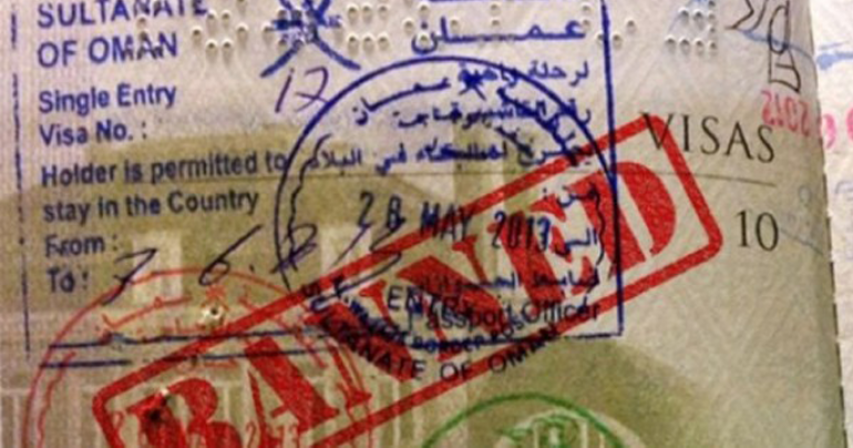A win-win situation for Oman companies, employees as NOC removed
- 5 years ago

Company owners and employees have welcomed the decision to scrap Oman’s No Objection Certificate(NOC), which comes into effect from January 1, 2021.
When that happens, expat workers can switch jobs from one company to another, if they furnish proof of the end of work contract or its termination.
Nalin Chandna, the CEO of National Gas Company, said this would help companies hire talented expats locally, instead of relying on workers based overseas.
“I think that companies have, in the past, spent a lot of money in trying to recruit foreign talent from overseas, because they were unable to secure the services of skilled foreign workers in the country,” he said. “It would have been a lot harder to hire expats based in the country, because they need an NOC, which might be difficult to get.
“However, these expats have the experience of working in the country, they have a home here, they have a driving licence and they are familiar with the way things work, so it would be better to encourage migration from within the country than get someone from abroad. It is also a lot more cost-effective for companies.”
Chandna also shared his perspectives of how the scrapping of the No Objection Certificate would help workers in the country, saying there would be better employment opportunities for them once the NOC ruling was lifted.
“If you are deemed to be surplus to services to one company, you can now easily move to another,” he explained. “This way, the new company benefits from having your skills, while you can also grow in your career. Your skills may be needed by companies here, and if these skills help your new company, then you are contributing in developing the economy.”
Expat workers currently employed in the country also shared their opinions on the scrapping of the NOC.
Vahid Khan, who worked in the automobile industry, said, “I had in the past been approached by another company that wanted me to work with them, but my present company has a policy of not giving NOCs to anyone, so I could not move. I tried to ask them to take my request into consideration, but they had a very clear ‘no means no’ policy when it came to NOCs.
“I am hopeful things will improve by the time this action against scrapping the NOC comes into effect, so that I can move if I find a better offer,” he added. “This will be very good for my career.”
Motassim Al Hashmi, an Omani national who worked in the country, said expats moving from one job to the next helped transfer their skills to the employees already present there, while adding to his trade by learning from his new colleagues.
“We are currently looking to build a knowledge-based economy, so it is important that we are able to be versatile, skilled workers,” he explained.
“Many of the expats are here because they are skilled in their jobs, and it benefits us to learn from them. Many companies have training programmes and internships for young employees, and it would definitely help us to work with such experienced people.”
However, some business owners were against the removal of the no objection certificate. Mazen Al Tawqi, the owner of Al Wefaq Real Estate Company, said while speaking to Times of Oman, that he was against the decision of lifting the rules of the NOC. “In the Sultanate, this decision is against businessmen. During the ongoing coronavirus pandemic, we have to pay the salaries of foreign employees in light of the financial losses we are incurring, due to the weak nature of the markets here.”
“After we have paid the salaries of the foreign employee for months, what if he moves to another institution?” he added. “The employer, who brings this employee from abroad, trains him and teaches him to work for years, loses out on this person when he chooses to move elsewhere and we then have to start from zero with a new employee. We lose the years of experience these qualified employees have, and they will share our experiences with other companies.
“He might take with him all the company secrets, our work culture, how to deal with businesses and negotiate contracts, and this puts us in danger of being exposed to other companies and could lead to bankruptcy, as a result of competition and because he is sharing our valuable practices with other companies,” added Al Tawqi.
“This will be against the expatriate, as he will not be appointed to sensitive positions in the company, but will be hired to fill a lower position, so that even when he leaves, he will not be able to share secrets of how we work, with other companies.”
On Sunday, Lt.Gen Hassan bin Mohsin Al-Shraiqi, Inspector-General of Police and Customs at the Royal Oman Police, issued a decision to amend some provisions of the executive regulations of the Law on the Residence of Foreigners.
Article No 1 says: "Article 24 of the executive regulations of the Law on the Residence of Foreigners is replaced by the following text:
"It is permissible for a foreigner to transfer from one employer to another, provided the employer has a licence to recruit workers, on condition that they provide proof of the end of work contract or termination of it. They must also provide evidence of the approval of the competent government authority on allowing the signed contract with the second employer and it must be in accordance with the controls set by the competent authority."
"The transfer of an expat's residency shall result in the transfer of the residence of his family members to the second employer, if the conditions necessary for his residency are met."
Until the procedures for transferring the residency of the expat are completed, the responsibility of the first employer remains with regards to everything related to their residency.
Comments